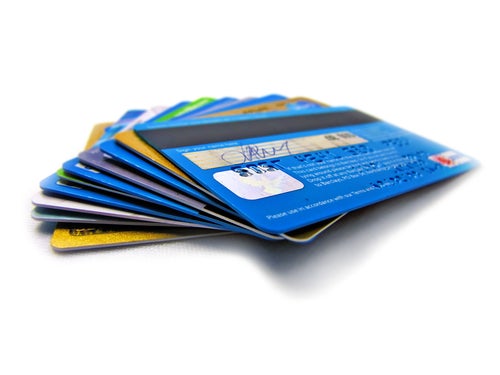2015’s Credit Card Debt Trends
Earlier this month CardHub released its 2015 Credit Card Debt Study, which compiled data on American credit card habits last year, and the findings could be troubling for America’s financial future. Many analysts – including Odysseas Papadimitriou, CardHub’s CEO – believe that current borrowing trends could be setting the United States up for a potential recession.
I recently wrote a post on the Federal Reserve’s report on credit card borrowing habits. The Federal Reserve found that, no matter the economy, Americans still put large amounts of debt on their credit cards.
CardHub’s report confirms the Federal Reserve’s findings, but goes even further. In fact, CardHub found that Americans are now borrowing at a rate unheard of since the 2008 recession. So what does the data tell us?
In 2015, Americans added $70.9 billion to their total credit card debt – over $52 million of which came in the fourth quarter. To put this in perspective, that’s almost as much credit card debt as Americans amassed in the entirety of 2014. It’s difficult to fathom numbers this large – so when CardHub drilled down to an individual level, they found that the average American household now owes $7,879 in credit card debt.
While these findings tell us that Americans are now borrowing at an increased rate, why should we be concerned? A number of reasons, says Papadimitriou.
Consumers are going back to 2008 spending habits, but incomes have not grown much in the past decade – this suggests we’re borrowing at an unsustainable rate that we cannot keep up with in the long term. If Americans continue to rack up credit card debt beyond their means to pay, there could come a tipping point at which a large segment of the population can no longer afford their payments – which could be disastrous for the economy.
If this reminds you of the conditions surrounding the 2008 recession, it should – there’s a parallel between the way Americans are treating credit cards and the way the housing bubble grew before imploding.
With the housing market, Americans were taking out mortgages that they could not afford, and eventually the bubble burst and sent many homeowners into foreclosures and bankruptcy. With the credit card market, the same conditions apply. If too many Americans get to a point at which they can no longer make their credit card payments, it could spell disaster for the credit industry, which in turn would send shockwaves across the entire economy.
The Importance of Spending Responsibly
Credit cards are a useful tool and there’s nothing to fear by using them. They can help you build credit and establish good financial habits. The key is to use them responsibly. Responsible credit card holders follow a few important practices:
- Making payments on time
- Paying off the balance in full each month
- Using no more than 30% of the available limit
- Periodically renegotiating for lower interest rates
You can read my post on smart credit card habits for more details.
The Takeaway
There’s no reason yet to believe the sky is falling. But the increasing amount of credit card debt that Americans are creating leaves us vulnerable to another economic downturn. By using our credit cards responsibly – and educating others on how to do so – we can reduce our reliance on credit cards and safeguard ourselves against a credit meltdown. Excessive credit card debt can affect our personal finances, our children, our fellow Americans, and future generations. Let’s make smart decisions that will positively impact ourselves, our community, and the nation as a whole.
Related Articles:
How Long Should You Keep Credit Cards Open?
American Credit Card Debt Remains High Regardless of Economy
Questions about credit repair?
Chat with an expert: 1-800-255-0263







